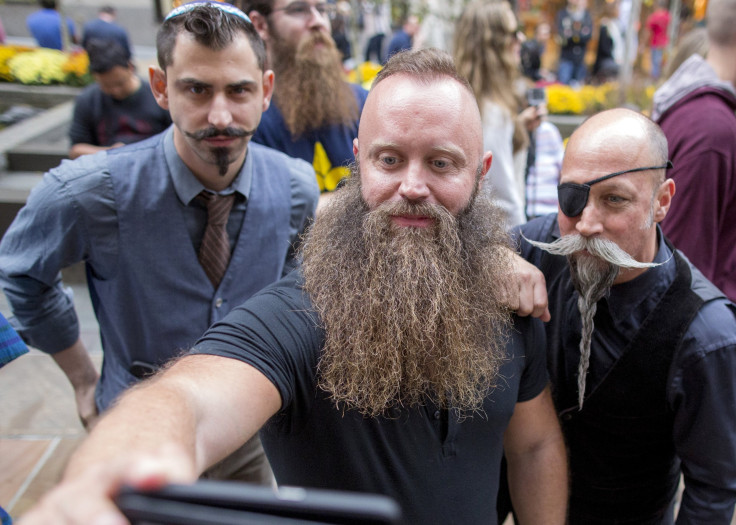Beard Facts: 6 Ways You Probably Didn’t Know Facial Hair Influenced Your Health

Facial hair is a funny thing. Most young men dream of the day they can grow a face full of fuzz to appear more masculine. Then when they get older and actually start growing whiskers, they shave them because beards aren’t as comfortable as they once thought and require too much upkeep. But for those of us who equate a clean-shaven face to a naked face, we couldn’t imagine losing the fuzz that makes us who we are.
Whether it’s part of a fashion trend or due to religion, growing a beard can be a fulfilling transformation — it can also benefit your health. Here are six facts about beards that may surprise you.
1. They Protect Against Bacteria And Infections
The hipster community descended into a state of anarchy back in May 2015 when news broke that a man’s beard could be a breeding ground for bacteria commonly found in fecal matter. Beardos around the world rejoiced to learn that the study was based on a very small sample size and that the results were far from definitive. In fact, a more comprehensive study that examined swabs taken from 408 bearded male hospital workers revealed that clean-shaven men were three times more likely than bearded men to carry harmful bacteria on their faces.
2. They Shade The Face From The Sun
Maintaining a beard in a warm climate may not seem ideal. So-called “winter beards” are supposed to keep a guy’s face warm, right? So wouldn’t a thick beard also capture heat when the sun is beaming down on it? Most bearded men, myself included, say no. A thick mug rug does, however, prevent skin cancer by providing between 90 and 95 percent protection from harmful ultraviolet rays. Although it may depend on the length and angle of facial hair.
3. They Shape How Attractive, Dominant, And Aggressive Men Seem
Beauty is in the eye of the beholder, but a nice face mane could go a long way with the ladies. A recent study conducted by researchers from the University of New South Wales in Australia asked 351 women and 177 heterosexual men to rate photos of 10 men based on attractiveness, masculinity, health, and potential parenting ability. Men with a heavy, 10-day beard were deemed most attractive by women; those with a full beard scored highest in perceived parenting skills among both women and heterosexual men. Men with a light stubble scored lowest across all categories, even compared to clean-shaven men.
4. They Can Grow Over Four Times A Man’s Height
It is estimated that around 55 percent of men around the world have some type of facial hair, whether it be a full beard, the Fu Manchu, or a regular old mustache. The average beard grows 5-and-a-half inches in a year and is made up of around 30,000 whiskers. If the average man were to never trim his beard, he would have a 27-and-a-half-foot beard by his death.
5. They Grow Very Long On Women As Well As Men
Hans Langseth passed away in 1927, but his impressive beard length of 17 feet, 6 inches ensures that his name lives on in Guinness World Records as the holder for the world’s longest male beard. His impressive accomplishment is currently on display at the Smithsonian. If you’re looking for the longest beard on a living man, look no further than Sarwan Singh from Surrey, British Columbia. His beard of 8 feet, 2-and-a-half inches earned official recognition back in September 2011. The longest beard on a female goes to Vivian Wheeler from Wood River, Ill., who grew a full beard after the death of her mother and four failed marriages back in 1993. Her longest strand, from follicle to tip, clocked in at 10.04 inches.
6. They Inspire Strong Feelings
People with pogonophobia have an abnormal and persistent fear of beards. Although the severity of this condition varies, common symptoms tend to include shortness of breath, rapid breathing, irregular heartbeat, sweating, nausea, and overall feelings of dread. Those with Pogonophilia, on the other hand, love beards and people with them.



























